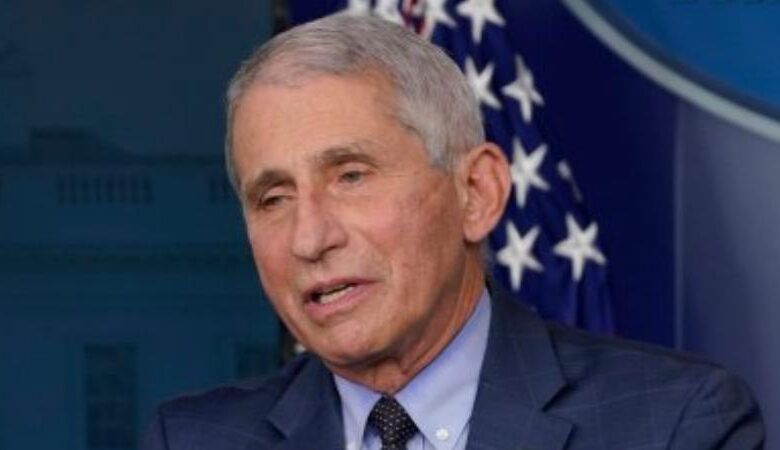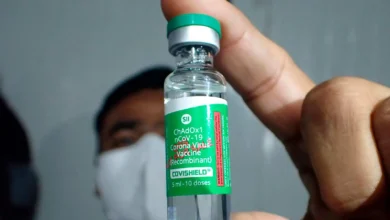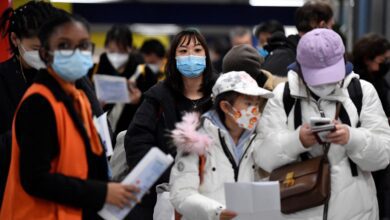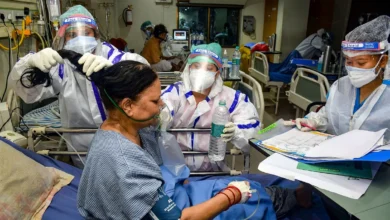“Shut Down the Country for a Few Weeks”: US’s Chief Medical Advisor Recommends Total Lockdown in India
Dr. Fauci also raised concerns over the slow pace of India's vaccination drive, saying that having only less than 2% of the population vaccinated in a country like India is a "serious issue".

Top US epidemiologist Dr. Anthony Fauci, among other medical experts has advised for a complete lockdown in India in backdrop of the second wave of Covid-19 that has taken the country by storm leading to a huge humanitarian crisis across the country.
He said that the lockdown would provide India with a window to take ‘immediate, intermediate, and long-term’ steps to curb the spread of the virus and prepare itself accordingly. “Literally lock down for a few weeks, you do not have to it for 6 months. But an immediate shutdown is necessary”, he said.
He also emphasized on the need for the Government to immediately procure medical supplies, PPE kits, and oxygen to alleviate the problem of those already suffering from the virus in need of resources. He gave this precedence over the vaccination drive saying, “it’s going to be a few weeks before you alleviate the prevention of other people getting sick by vaccinating them”.
Therefore, a more immediate way to temporarily put an end to the cycle of transmission would be to lock down the country for a few weeks while arranging for adequate medical supplies and assistance for those infected.
Fauci noted the relaxed protocol that India had followed leading up to the second wave of the pandemic assuming that the worst was over, and said that the authorities had perhaps “declared victory prematurely”. “If you don’t respect the virus’ ability to cause serious damage, you are going to get into trouble”, he added.
Apart from the potential lockdown strategy, concerns over the ongoing vaccination drive have also been expressed by experts. Dr. Fauci, mentioned this, saying “To have a country like India, where only around 2% of people are vaccinated, is a very serious situation”.
He recommended getting contractual arrangements with multiple companies to get vaccines as quickly as possible, while revving up its own capabilities to make vaccines, given how India the largest manufacturer of vaccines in the world.
Indian Medical Experts on Lockdown:
Earlier, public health experts in India had also called for lockdown to be implemented in states. “The situation will go out of control if we don’t go into a lockdown right now because it’s a fierce spread. One person is transmitting the virus to multiple people at a very quick speed. It’s based on a scientific principle that we have recommended a two-week lockdown,” said Dr. P Gopikumar, State Secretary of the Indian Medical Association.
The Government had earlier ruled out the possibility of an entire lockdown and planned to focus on smaller containment zones, but experts have said that the current restrictions imposed have not been very effective.
“It’s been 10 days since the restrictions have been brought in, at least the infection curve should have stabilized. But the curve is only going up and we are setting new records every day. If the present situation continues, it will lead to an explosion of cases and the collapse of the system,” Dr. Padmanabha Shenoy, a well-known public health expert said.
The lockdown strategy has been the most widely adopted and effective way to curb the spread of the virus and has worked in favor of many countries. The UK, after suffering from a deadly 2nd wave of the pandemic has reportedly reached the bottom of the fatal disease levels.
“We are really in very low levels that are comparable to where we were in September last year. We are running as a typical seven-day average at just over 2,000 people testing positive per day. Most of the steady decline we have seen, the disappearance of our third wave, has been down to the efforts of the British people in following lockdown”, said England’s Deputy Chief Medical Officer.
Researchers at Imperial College London have also found that Covid-19 infections dropped about 60% in March as the national lockdown in the UK slowed the spread of the virus.
However, in spite of the medical aspect, implementation of a lockdown in a country with such great social and economic variation amongst the population does come with a lot of repercussions. While a part of the population might be comfortable sitting at home with their livelihoods shut down, a large part of it will not.
This was earlier seen in March 2020 when the first Covid-19 induced lockdown was imposed in the country leading to a huge migrant crisis that saw around 40 million panic-stricken workers struggling to get to their hometowns. It also resulted in a considerable economic loss for the country that took months to rebound from.
To impose or not impose a lockdown is a trade-off between public health and wellness, and the economy. Nevertheless, considering the current situation as the number of Covid-19 cases in India rise sharply with the country recording over 4 lakh new cases in its highest single-day spike, a complete shutdown (at least for a few weeks) along with ramping up the vaccination drive could be the single most viable option to curb the pandemic.



